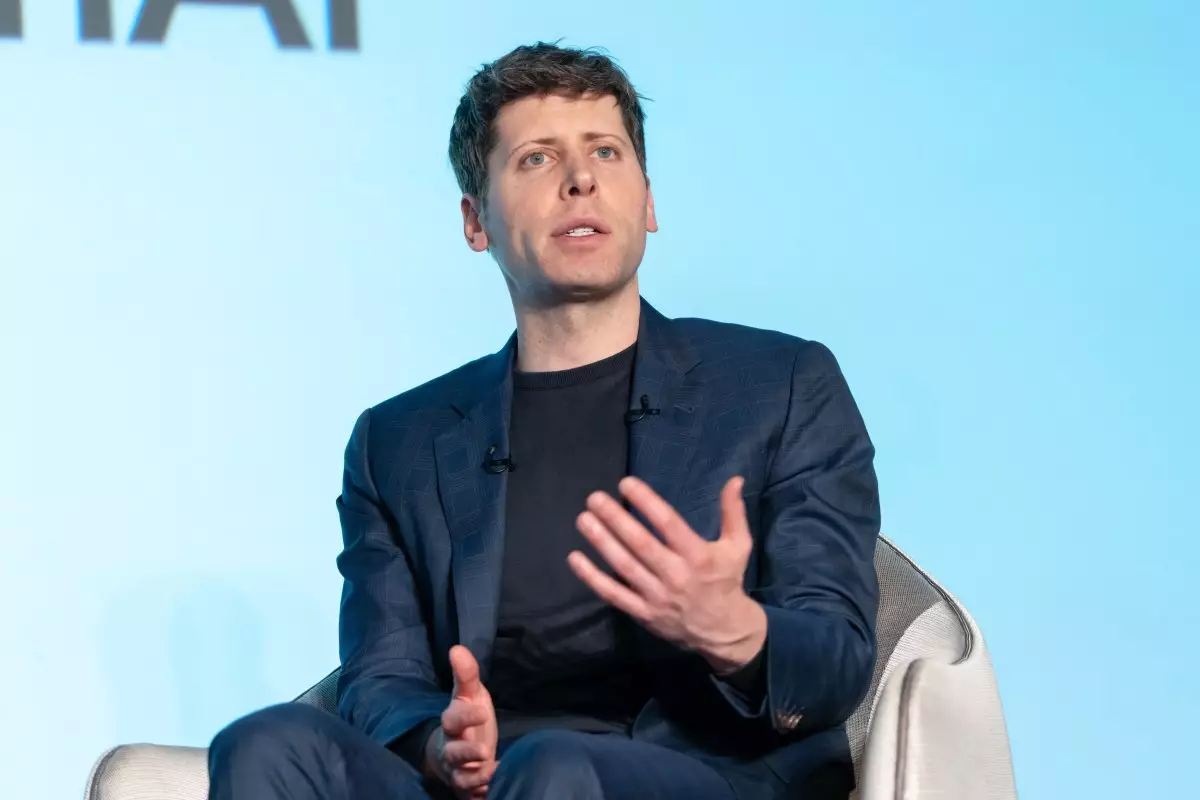In a world increasingly dominated by artificial intelligence, distinguishing between human interactions and AI-generated responses has become a critical challenge. Tools for Humanity, a pioneering startup co-founded by Sam Altman of OpenAI fame, is facing this conundrum head-on with their latest innovation—the Orb Mini. This device, which made its official debut at the “At Last” event in San Francisco, represents a significant step towards verifying human identity in an age where AI is nearly indistinguishable from real individuals.
The Orb Mini’s design, reminiscent of a smartphone, features prominent sensors aimed primarily at scanning users’ irises. This compact, user-friendly gadget is not just another tech novelty; it stands as a testament to the ongoing battle for authenticity in our digital interactions. With its unique capability to provide users a “proof of human” identity, the Orb Mini aligns itself with Tools for Humanity’s mission of building a transparent and inclusive digital ecosystem.
Addressing the Urgency of Digital Verification
As the capabilities of AI continue to grow—mimicking human interaction with remarkable accuracy—the necessity for effective verification tools is clearer than ever. The World project, previously known as Worldcoin, seeks to ensure that users can confidently identify themselves as human, creating an essential barrier against the encroaching tide of AI impersonation. According to the company, around 26 million individuals have already signed up for their verification services, highlighting the pressing need for a reliable identification method in the digital landscape.
The desire to integrate this technology into everyday life is ambitious. Tools for Humanity’s plan to develop a nationwide presence through storefronts in major U.S. cities such as Austin, Los Angeles, and Miami signifies a robust approach to user engagement. By inviting consumers to come in and have their irises scanned, the company aims to make human verification an integral part of the digital interaction experience.
The Functionality Debate: Beyond Verification
While the primary purpose of the Orb Mini is to verify human identity, its broader functionalities remain somewhat ambiguous. After its launch, discussions around its potential as a mobile point-of-sale device emerged, showcasing how such technology could evolve to serve multiple purposes. Yet the overarching question remains: will users embrace a device predominantly designed for identity verification, or will its additional capabilities fulfill a more expansive role in their daily lives?
This dilemma reflects a larger tension in the tech industry—how to balance niche utility with expansive functionality. After all, a device that solely focuses on verifying humanity risks becoming obsolete if it cannot adapt to the needs of its users. Echoing this sentiment, industry experts acknowledge the need for the Orb Mini to not only serve its verification function but also to seamlessly integrate into user lifestyles in a meaningful way.
Potential Collaborations and Future Developments
The relationship between Tools for Humanity and OpenAI raises intriguing possibilities. As Altman continues to spearhead multiple ventures at the forefront of technological advancement, it’s worth pondering whether the capabilities of the Orb Mini will one day blend with AI’s prowess. If a collaboration emerges between these two entities, it could redefine the very essence of human verification, potentially introducing groundbreaking AI features that further enhance the device’s utility.
However, as the world watches, the priority remains on the Orb Mini’s capacity to serve as a trustworthy verification tool. With potential regulatory implications and the ethical responsibilities accompanying such technology, Tools for Humanity must tread carefully, ensuring that their innovations uphold privacy and prevent misuse.
While the Orb Mini presents a fascinating solution to the ongoing identity crisis in our digital world, it also embodies the broader questions of user trust, technological evolution, and the relationship between humanity and artificial intelligence. The quest for a universally accepted method of proving one’s humanity is only beginning, and platforms like Tools for Humanity are at the forefront of this essential dialogue.

